Several months after AT&T and T-Mobile reached multimillion-dollar settlements with federal regulators to close the books on allegations of bill-cramming — illegal, unauthorized third-party charges for services like premium text message subscriptions — both Sprint and Verizon have also decided to pay the regulatory piper. Combined, the two wireless companies will pay $158 million to settle cramming claims with the FCC and the Consumer Financial Protection Bureau. [More]
cram this
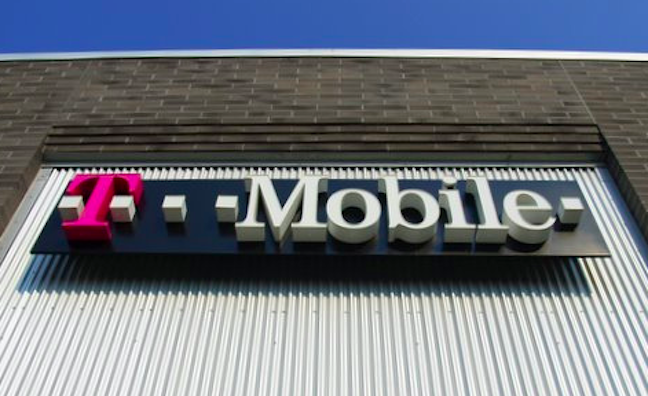
T-Mobile Agrees To Pay $112.5M To Settle FTC Mobile-Cramming Lawsuit
Rounding out a week punctuated by new accusations of mobile carriers overcharging consumers using a practice known as “bill-cramming,” one past lawsuit is being put to rest. T-Mobile agreed today to shell-out at least $112.5 million to settle a Federal Trade Commission lawsuit that the “Un-carrier” tacked-on unwanted third-party charges to customer’s bills. [More]
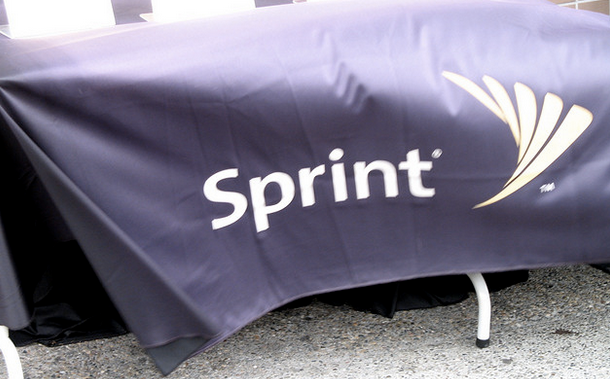
CFPB Lawsuit: Sprint Made Millions Off Consumers Acting As A “Breeding Ground” For Bill-Cramming
Just a day after rumors surfaced that Sprint could be facing a $105 million from the Federal Communications Commission for allegedly overcharging customers using a practice known as “bill-cramming,” the Consumer Financial Protection Bureau has filed a lawsuit against the carrier for the bogus charges placed on customer’s phone bills. [More]

FTC Gives Wireless Industry Suggestions On How To Not Be Bill-Cramming Jerks
Earlier this year, the Federal Trade Commission sued T-Mobile, accusing the wireless company of making hundred of millions of dollars off of so-called “premium” text-messaging subscriptions that were often never requested by subscribers. To preempt others from getting involved in illegal “bill cramming,” the FTC is asking carriers to implement policy changes now instead of waiting until it’s too late. [More]
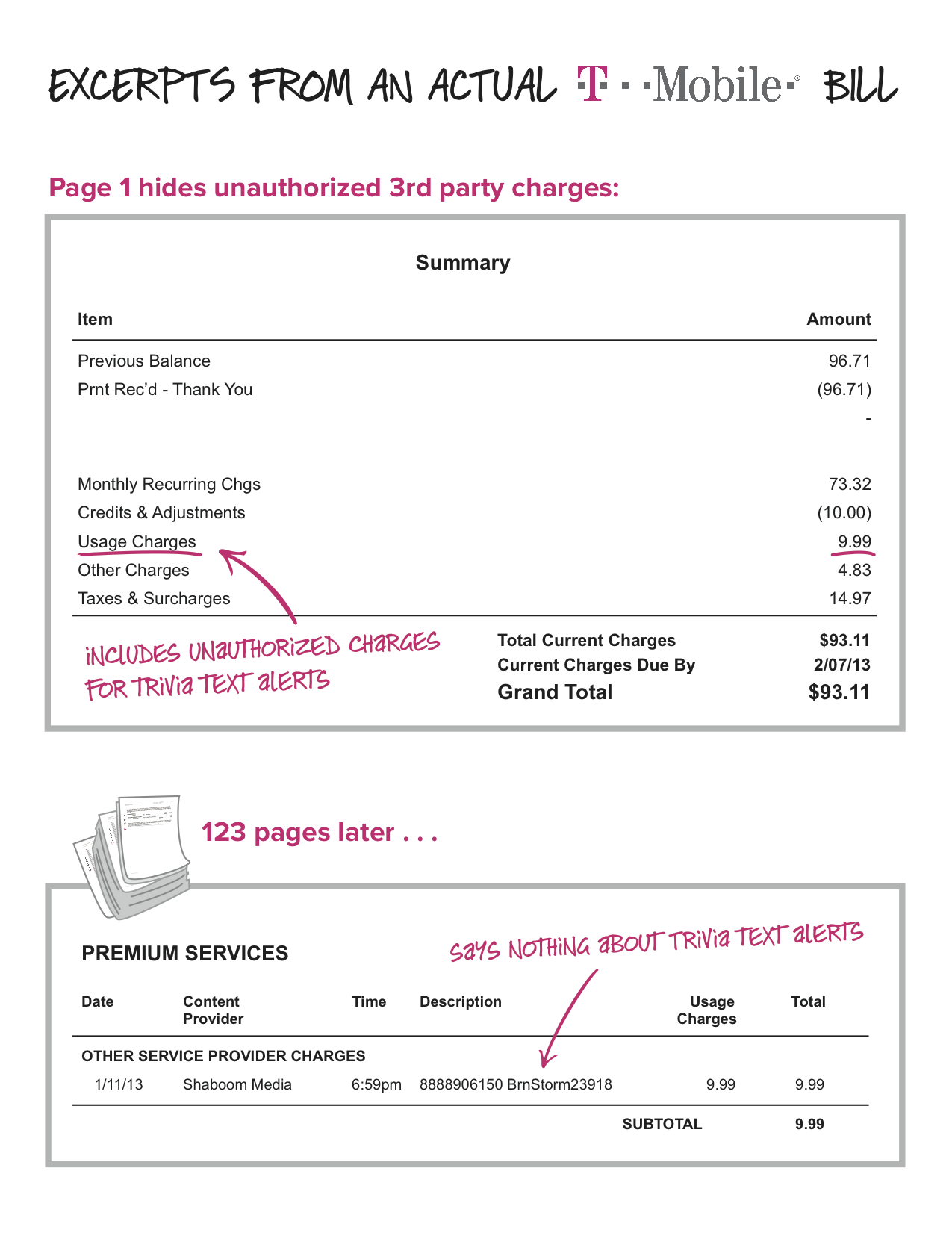
T-Mobile Accused Of Making A Ton Of Cash From Bogus Charges On Phone Bills
T-Mobile, a company that has tried to position itself as being consumer-friendly, has been accused by federal regulators of being anything but friendly. The self-described “Un-carrier” has been accused in federal court of making hundreds of millions of dollars off of so-called “premium” text-messaging subscriptions that were often never requested by subscribers. [More]
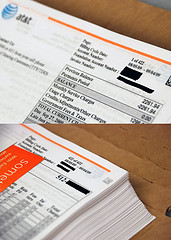
FCC Proposes Anti-Cramming Regulations For Landline Bills
Last month, FCC chair Julius Genachowski said the commission was preparing to take on the problem of landline bill cramming, the practice of placing mysterious third-party charges for everything from long-distance to yoga classes on your landline bill. Earlier today, the FCC announced more details of its proposed plan. [More]
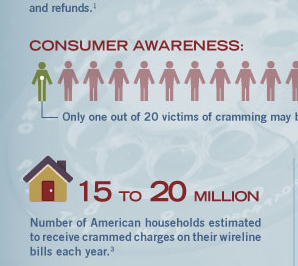
FCC Chair: 15 To 20 Million Americans Are Seeing Mystery Fees On Landline Bills
Eight months after the FCC settled with Verizon Wireless for $25 million over mystery charges on cell phone bills, the Commission’s Chairman Julius Genachowski says he’s ready to take on the bigger problem of so-called “cramming” on landline bills. [More]


